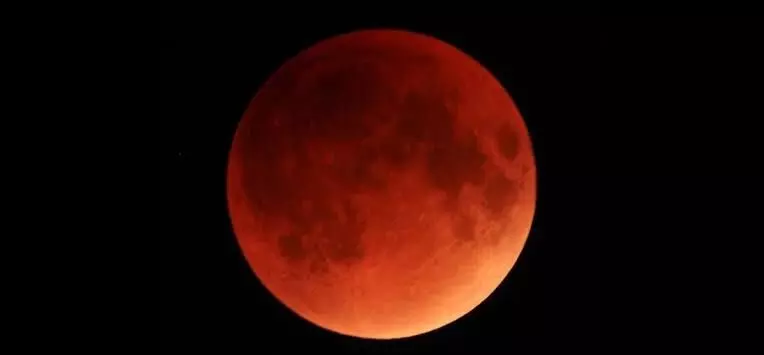
Super blood moon, lunar eclipse to happen same time to enthral spectators
text_fieldsStargazers across the world are enthralled to experience two celestial phenomena happening at the same featuring a super moon – when a full moon reaches the closest point to Earth in its orbit – and a blood moon, which is caused by a total lunar eclipse.
The total lunar eclipse of a super "blood" moon will be visible on Wednesday night across the Pacific, the western half of North America, the bottom of South America and eastern Asia.
The supermoon is larger to the eyes as it marks the closest passing of the moon to the Earth as part of its elliptical orbit, combined with a full moon. The "blood" red colour is a result of reflected sunsets and sunlight from the Earth's atmosphere. In addition to this, a total lunar eclipse will be visible for about 15 minutes as Earth passes directly between the moon and the sun. But the entire show will last five hours, as Earth's shadow gradually covers the moon, then starts to ebb.
Hawaii has the best seat in the house and then short of that will be California and the Pacific Northwest," said Nasa's Noah Petro, the project scientist for the Lunar Reconnaissance Orbiter, while speaking to the Guardian. New Zealand and Australia also will have prime viewing he said.
Skygazers in Virginia, Europe, Africa and western Asia will miss everything although a brighter than usual moon will be visible.
Meanwhile, the Lunar Reconnaissance Orbiter will measure temperature changes on the lunar surface during the eclipse. Telescopes atop Hawaii's Mauna Kea will also monitor the moon, Petro said.
The next total lunar eclipse will be May 2022. The last one was January 2019. Another lunar eclipse is predicted for November 19 of this year.























